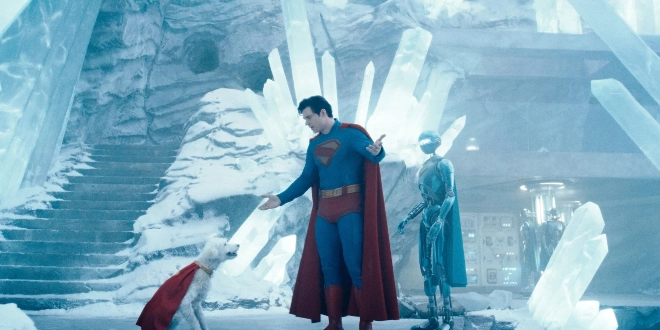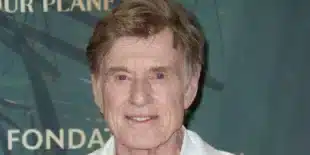James Gunn’s much-anticipated Superman kicks off the new DC Universe with both heart and havoc, blending moments of emotional depth with a barrage of CGI spectacle. While the film offers flashes of originality and engaging character work, it also carries the weight of genre fatigue and stylistic leftovers from Gunn’s earlier projects.
A Relationship Grounded in Humanity
Among the film’s most memorable moments is an unexpectedly gentle scene that encapsulates the budding intimacy between Clark Kent and Lois Lane. In this simple domestic vignette, Clark surprises Lois with “breakfast for dinner” to mark their three-month anniversary—a gesture he mistakenly believes is her favorite. Lois corrects him, noting that it’s actually his favorite. It’s a subtle, tender exchange that captures the early awkwardness of a relationship still finding its footing—complicated further, of course, by the fact that Clark is Superman.
This dynamic sets the stage for one of the film’s standout sequences: an on-the-record interview between Lois and Superman. Framed as a sharp, screwball-style verbal duel, the scene carries a serious undertone as Lois grills Superman on the morality of unilaterally intervening in a foreign conflict without U.S. consent. It’s tightly scripted, well-acted, and refreshingly grounded in real-world ethical tensions—offering a glimpse into what Superman might have been if it had leaned more into character-driven storytelling.
A New Chapter with Old Baggage
Gunn wisely sidesteps the well-worn origin story, instead dropping us into a world where Superman is already established as Earth’s most admired superhero. But that admiration wavers following a controversial mission in which he singlehandedly halts a brewing war. The fallout raises questions about unchecked power and sovereignty—core themes that the film touches on but doesn’t fully explore.
Following a rare defeat, Superman is rescued by Krypto the Superdog, whose unruly behavior and comedic timing inject levity while also signaling that this isn’t a film that takes itself too seriously. Still, the tonal balancing act doesn’t always work. The movie often veers between thoughtful commentary and Guardians-style absurdity, sometimes undercutting its own emotional stakes.
A Familiar Face-Off and Expanding Universe
Nicholas Hoult puts a fresh spin on Lex Luthor, portraying him as a slick tech mogul with megalomaniacal ambitions and an Elon Musk-like obsession with domination. Hoult’s Luthor is both charismatic and chilling, aided by a gleaming LuthorCorp HQ and a crew of engineers fueling his vast defense empire. Meanwhile, his girlfriend Eve Teschmacher, played with campy flair by Sara Sampaio, provides comic relief as a self-absorbed influencer snapping selfies amid corporate chaos.
Wendell Pierce’s Perry White is regrettably underused, though Skyler Gisondo injects youthful energy into Jimmy Olsen, offering a humorous and modernized take on the classic sidekick.
As Luthor sets events in motion to erode public support for Superman—a trope audiences have seen time and again, particularly in Batman’s cinematic arcs—the film introduces a host of secondary heroes. These include Mister Terrific (Edi Gathegi), Green Lantern Guy Gardner (Nathan Fillion, bowl cut and all), and Hawkgirl (Isabela Merced). Though their abilities impress, their quippy banter and endless debate over team branding (“Justice Gang”?) feel more like familiar genre filler than essential plot development.
Power, Politics, and Popcorn
In one of the film’s more politically charged moments, Superman is taken into custody by masked agents, his face slammed into the pavement. He is thrown into a high-security detention center alongside innocent civilians—including a family torn apart and a woman imprisoned for writing a critical blog post about Luthor. These scenes carry an unmistakable reflection of modern authoritarian trends and surveillance states, adding unexpected gravitas to the film’s second act.
Despite this, Superman doesn’t entirely lose sight of its aspirational core. In one climactic battle, Clark pauses mid-fight to rescue a squirrel—an endearing if slightly absurd reminder of his unwavering moral compass. Even when confronting monstrous adversaries, he questions whether lethal force is necessary, striving for compassion amid chaos.
James Gunn earns credit for casting against type with Pruitt Taylor Vince and Neva Howell as Jonathan and Martha Kent. Their portrayal offers a down-to-earth warmth that feels refreshingly authentic, especially compared to the more polished portrayals in previous iterations like Man of Steel. The small-town scenes between Clark and his adoptive parents resonate with quiet sincerity and stand among the film’s emotional highlights.
A Solid Start, but Not a Soaring One
David Corenswet is undeniably likeable in the titular role—charismatic, kind, and earnest—but doesn’t quite radiate the iconic presence of Christopher Reeve or the intense gravitas of Henry Cavill. His Superman is relatable and refreshingly vulnerable, but perhaps a bit too restrained to anchor the DC Universe with the awe such a figure typically commands.
With nearly a dozen versions of Superman and Lex Luthor already behind us, this latest chapter feels more like a rebooted remix than a bold new vision. The result is a film that entertains but rarely surprises, nods to legacy but doesn’t redefine it.
Final Verdict: Superman delivers bursts of charm and timely commentary, but often feels like it’s playing the hits rather than composing a new anthem. It’s enjoyable and competent—but raises the question: in a world flooded with superhero content, was another Superman film really necessary?


